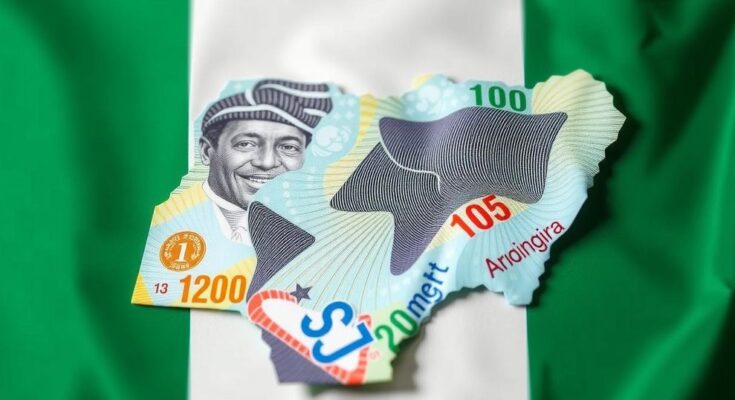The World Bank’s chief economist, Indermit Gill, stated that reforms under President Bola Tinubu have made the naira one of the most competitive currencies in 20 years. The decision to float the naira and eliminate fuel subsidies has alleviated fiscal distress, but also led to increased poverty and unrest concerns. Gill advises continued commitment to these reforms while implementing support for vulnerable citizens.
The recent currency reforms enacted by the administration of President Bola Tinubu have positioned Nigeria’s naira as one of the most competitive currencies in the past two decades, as asserted by Indermit Gill, the chief economist of the World Bank. The decision to allow the naira to float and to eliminate fuel subsidies has notably mitigated the risk of fiscal collapse that Nigeria faced. Although the devaluation of the naira has intensified poverty levels and led to concerns about potential civil unrest, Gill emphasized the importance of remaining steadfast in these reform initiatives. According to Mr. Gill, the current exchange rate presents a “great opportunity for the private sector.” These reforms were necessitated after the official exchange rate lagged behind the parallel market significantly, moving from a rate of NGN500 per dollar to nearly NGN900. Despite the continuous depreciation of the currency exacerbating economic difficulties for many Nigerians, regulatory steps have been implemented to curb illegal foreign currency trading and restrict global cryptocurrency exchanges. Despite criticisms suggesting a return to a fixed exchange rate, Gill advocated for the maintenance of the current floating exchange system, stating, “This is only the beginning. Nigeria will need to stay the course for at least another 10 to 15 years to transform its economy.” He also highlighted the importance of safeguarding the most vulnerable segments of the population, recommending that the government increases short-term financial support for impoverished households and implements social safety nets funded by savings originating from the removal of the fuel subsidy.
The global economic landscape has experienced various shifts, impacting the stability of national currencies, particularly in developing nations like Nigeria. For many years, the naira faced pressures due to poor policy decisions, including a fixed exchange rate system that failed to reflect market realities. With the new administration under President Bola Tinubu, significant economic reforms were initiated in 2023, primarily focusing on currency flotation and subsidy removal to stabilize the economy and foster growth. There are concerns regarding the effects of these measures on the population, especially in the context of rising inflation and poverty levels.
In conclusion, the reformation of Nigeria’s currency under President Tinubu represents a critical juncture for the country’s economic trajectory. Although these changes come with short-term challenges, particularly regarding poverty and stability, they are positioned to unlock opportunities for growth and investment in the long run. The guidance offered by World Bank officials suggests a path towards sustainable economic reform, provided that the government supports vulnerable populations during this transitional period.
Original Source: news.bitcoin.com




